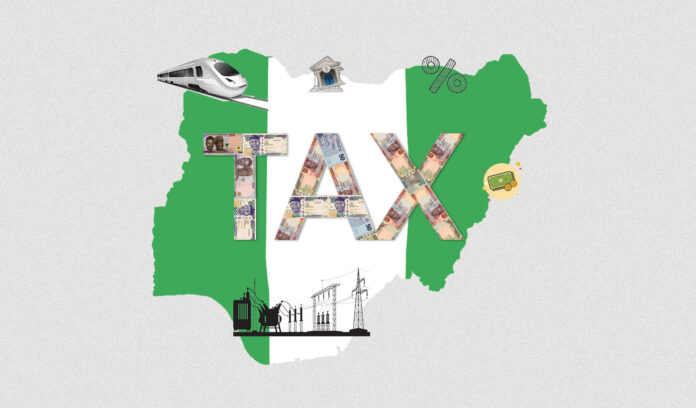LAGOS: President Bola Tinubu has signed into law four landmark tax reform bills, marking the most sweeping overhaul of Nigeria’s tax system in decades.
The reforms, which were passed by the National Assembly and assented to on Thursday, June 26, 2025, at the Presidential Villa in Abuja, will officially take effect from January 1, 2026.
The signing ceremony was attended by key political leaders, including Senate President Godswill Akpabio, House Speaker Tajudeen Abbas, governors, ministers, and members of the National Assembly.
The new legislation includes the Nigeria Tax Bill, Nigeria Tax Administration Bill, Nigeria Revenue Service (Establishment) Bill, and Joint Revenue Board (Establishment) Bill.
Speaking at the event, President Tinubu described the reforms as a turning point in Nigeria’s economic governance.
For too long, our tax system has been a patchwork complex, inequitable, and burdensome. That era ends today. We are laying the foundation for a tax regime that is fair, transparent, and fit for a modern, ambitious Nigeria, the President said via his official X account (@officialABAT).
The President assured citizens and investors that the reforms will improve tax administration, increase revenue generation, reduce bottlenecks for businesses, and attract both domestic and foreign investments.
According to the Chairman of the Federal Inland Revenue Service (FIRS), Zacch Adedeji, the reforms will not take immediate effect. Instead, a six-month transition and sensitisation period has been introduced, with implementation beginning in January 2026 to align with the government’s fiscal year.
-
Renaming of FIRS: The Federal Inland Revenue Service (FIRS) will now be known as the Nigeria Revenue Service (NRS).
-
Unified Revenue Collection: The NRS will oversee revenue collections previously managed by agencies such as the Nigeria Customs Service, NUPRC, NPA, and NIMASA.
-
Low-Income Relief: Workers earning ₦800,000 or less annually will be exempt from paying income tax.
-
High-Income Taxation: Individuals earning ₦50 million or more annually will now pay 25% personal income tax.
-
Small Business Exemption: Small business owners are fully exempted from income tax obligations.
-
Corporate Tax Cut: Medium and large firms will see company income tax reduced from 30% to 25% starting in 2026.
-
VAT Exemptions: Essentials such as food, medical services, pharmaceuticals, school fees, and electricity are now VAT-free.
-
No VAT Increase: The VAT rate remains at 7.5%, with no upward adjustment.
-
New Development Levy: A 2–4% levy will be dedicated to funding critical institutions like NELFUND, TETFund, NITDA, and NASENI.
-
VAT Sharing Formula (National): 10% for the Federal Government, 55% for States, 35% for LGAs.
-
VAT Sharing Formula (States): 50% based on equality, 30% on derivation, and 20% on population.
The reforms are expected to ease the burden on low-income earners and small businesses while redistributing more funds to states and local governments for grassroots development.
However, high-net-worth individuals and corporations will face stricter compliance obligations under the new regime.
Economists believe the tax reform is a critical step in strengthening Nigeria’s non-oil revenue base, reducing over-reliance on crude oil, and stabilizing government finances amid rising global economic uncertainties.
The next six months will focus on nationwide sensitisation, training of revenue officers, and systems upgrades to ensure a smooth transition before the January 2026 rollout.



